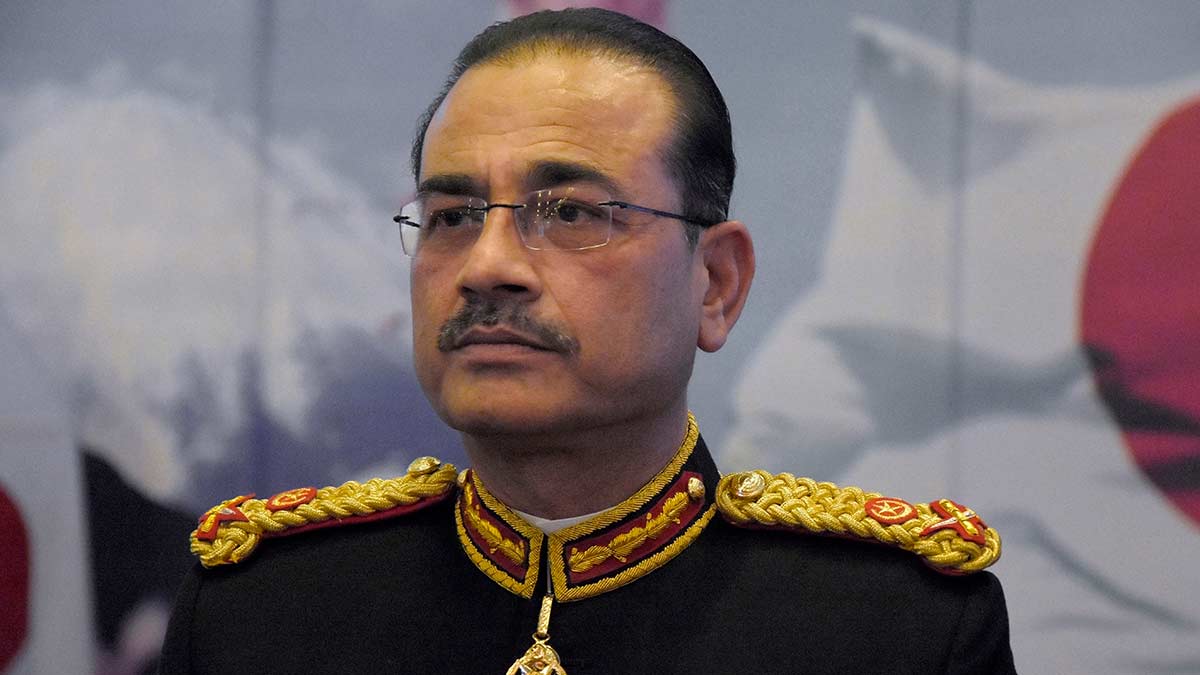Asim Munir justifies terror groups' 'legitimate struggle' for Kashmir, few months after Pahalgam attack
 War over peace: General Asim Munir | AP
War over peace: General Asim Munir | AP
Pakistan Army chief Field Marshal Asim Munir on Saturday backed terror groups operating in Jammu and Kashmir, justifying their actions (what India has described as terrorism) as a “legitimate struggle”.
Addressing a graduating parade at the Pakistan Naval Academy in Karachi, he explained that Islamabad would even continue providing political, diplomatic, and moral support to the Kashmiri people.
ALSO READ | Army foils Jaish-e-Mohammed militants' bid to infiltrate LoC in J&K, nab local guide
Munir's inflammatory comments come just a day before the Indian Army stopped an infiltration attempt by Jaish-e-Mohammed (JeM) militants from Pakistan-occupied Kashmir (PoK) at the Keri sector of Rajouri, Jammu and Kashmir—two days before the annual Amarnath Yatra.
A group of heavily armed militants were challenged, leading to a gunfight that killed at least two of them. A local guide, arrested after suspicion of having assisted them, is now being questioned by security agencies.
Munir, who is no stranger to spreading inflammatory anti-India rhetoric, also declared in his speech that India had “twice undertaken acts of unprovoked aggression against Pakistan”, and the onus of any future escalation would “squarely lie with the aggressor”.
“Pakistan, despite grave provocations, acted with restraint and maturity, and demonstrated its commitment to regional peace and stability, which has led to Pakistan’s role as a net regional stabiliser,” Munir said.
His speech was quite similar to one he made a few months ago, where he had stirred tensions by calling Kashmir the “jugular vein” of Pakistan—which may have been a trigger for the devastating Pahalgam attack of April 22, where 26 Indian civilians were killed.
ALSO READ | ‘Will not trade with New Delhi and Islamabad if...’: Trump repeats claims of stopping India-Pak ‘nuclear war’
The attack had led to India's Operation Sindoor on May 7, a series of precision strikes on terrorist camps operating on Pakistani soil.
This triggered 88 hours of intense clashes, with both sides using drones, missiles, and long-range weapons, before they reached a ceasefire to halt military actions on May 10.
While US President Donald Trump took responsibility for bringing about the ceasefire, New Delhi has repeatedly clarified that the Kashmir issue was a bilateral dispute between India and Pakistan, and that America had not been involved in bringing about the ceasefire in any way.
New Delhi has also warned Islamabad that Operation Sindoor was only paused, and that any further terrorist attacks on its soil would be strongly dealt with.
World